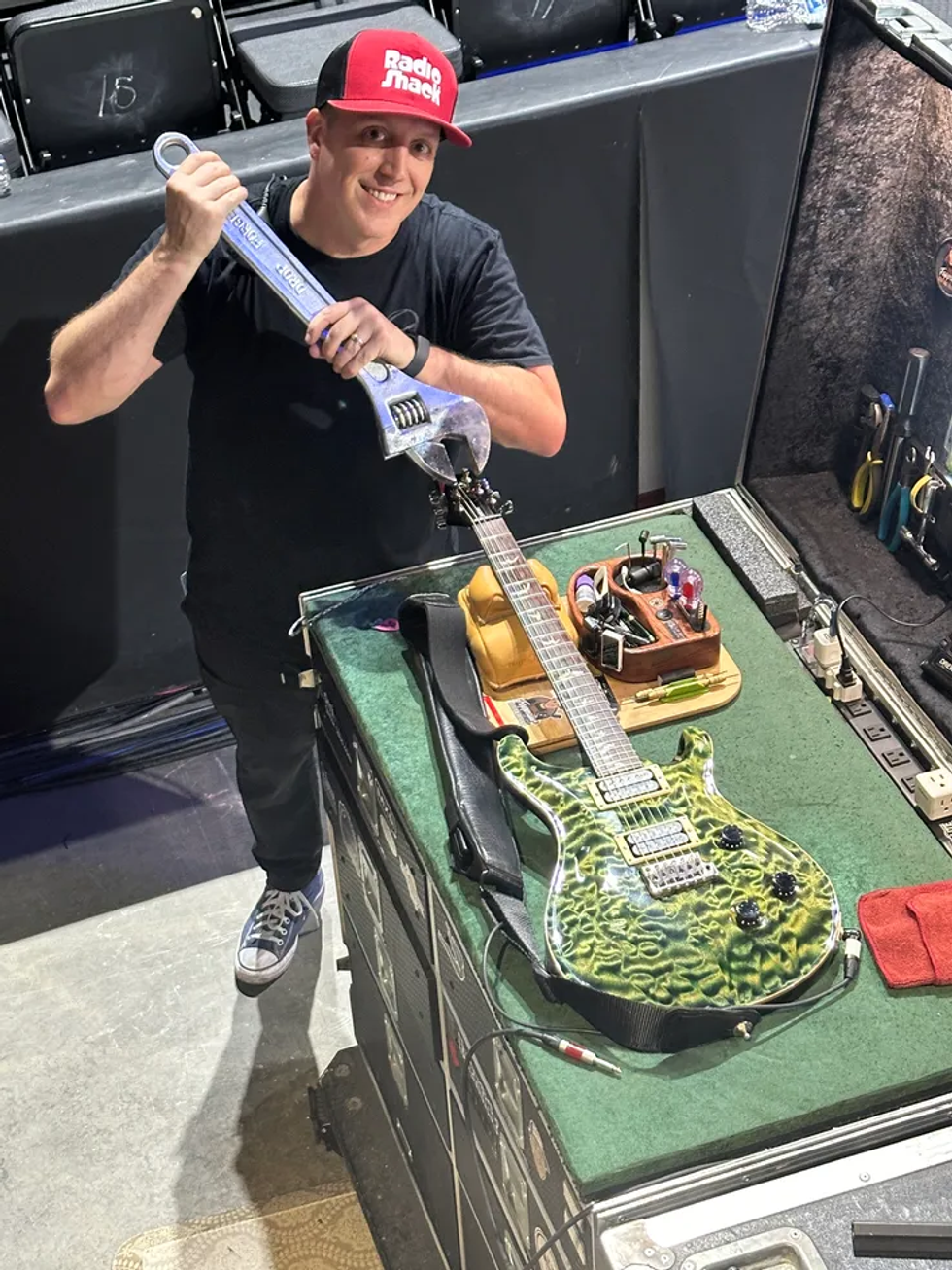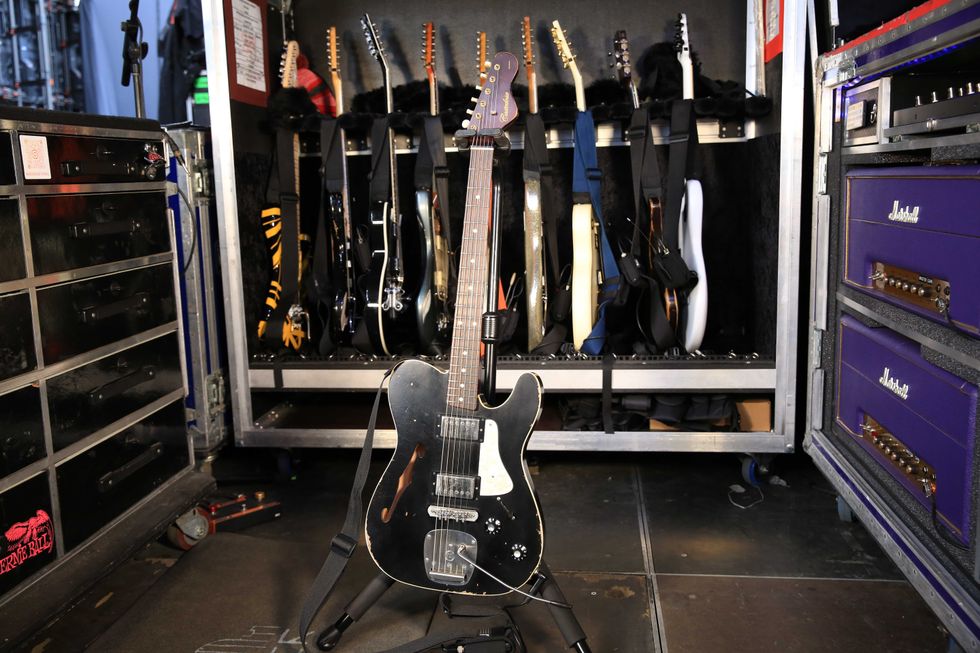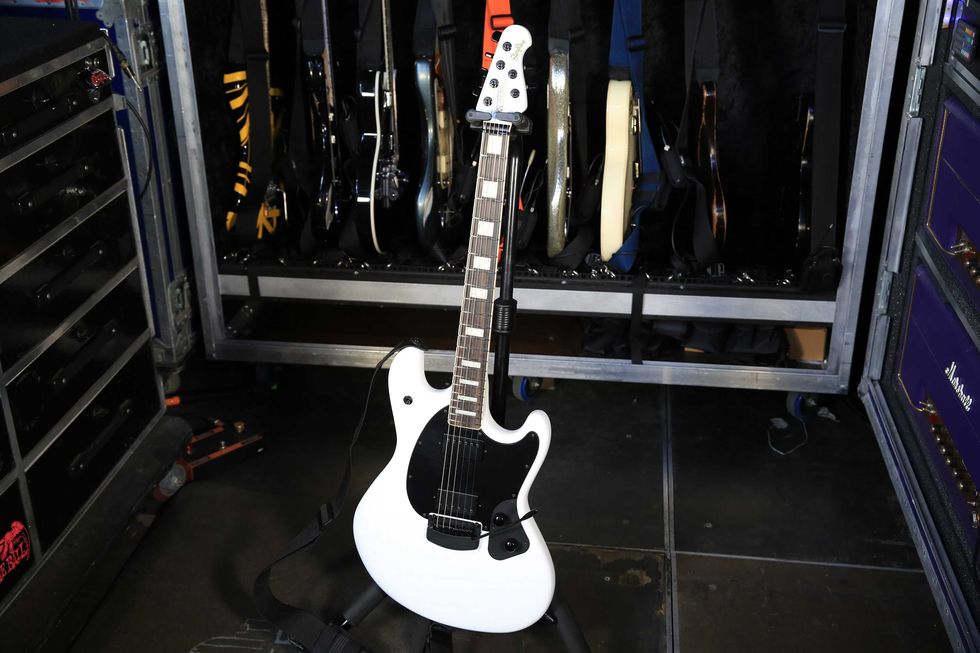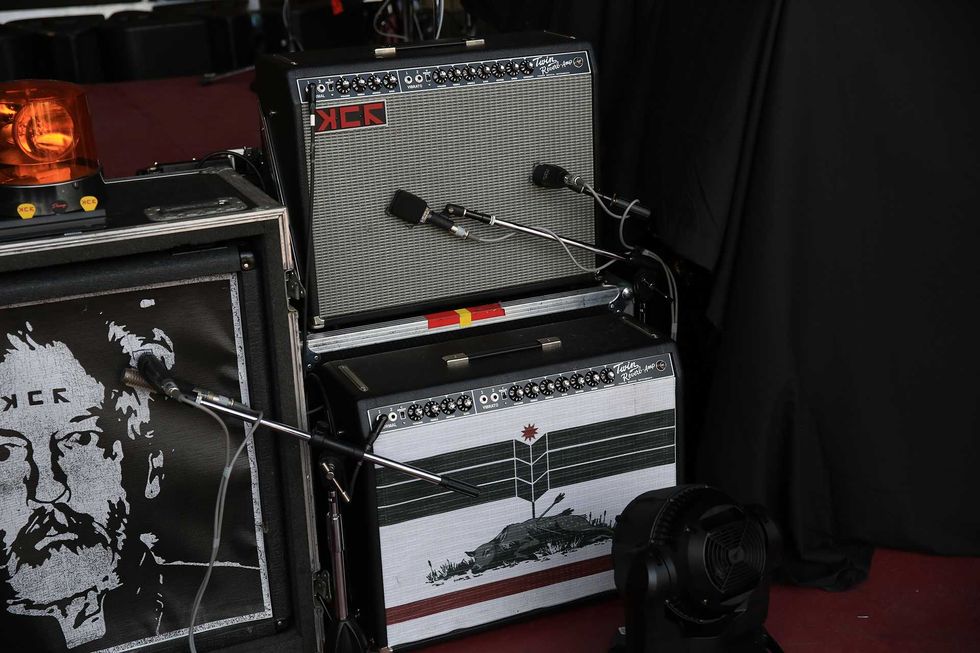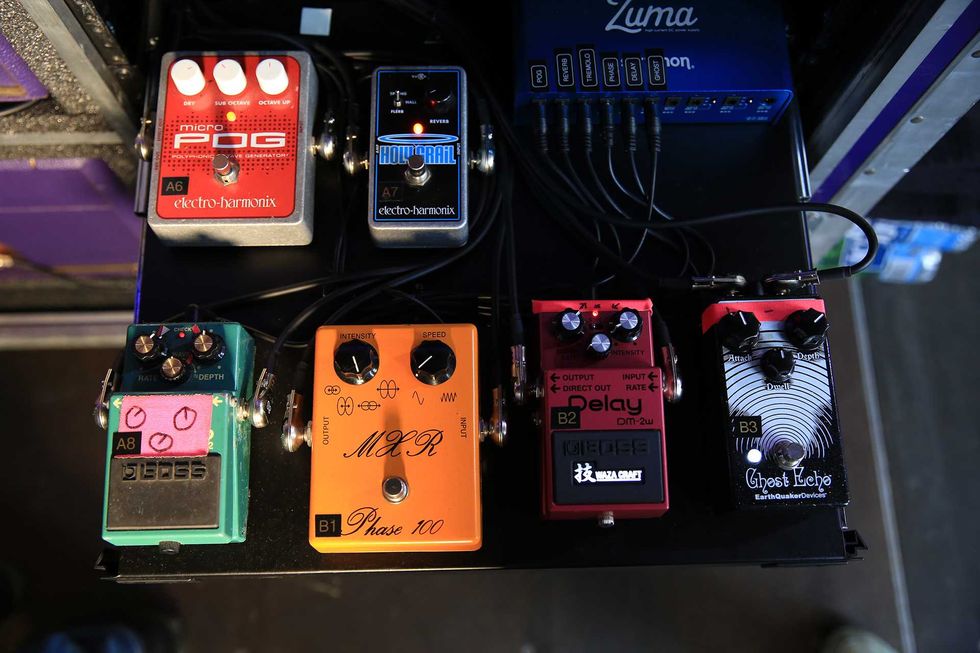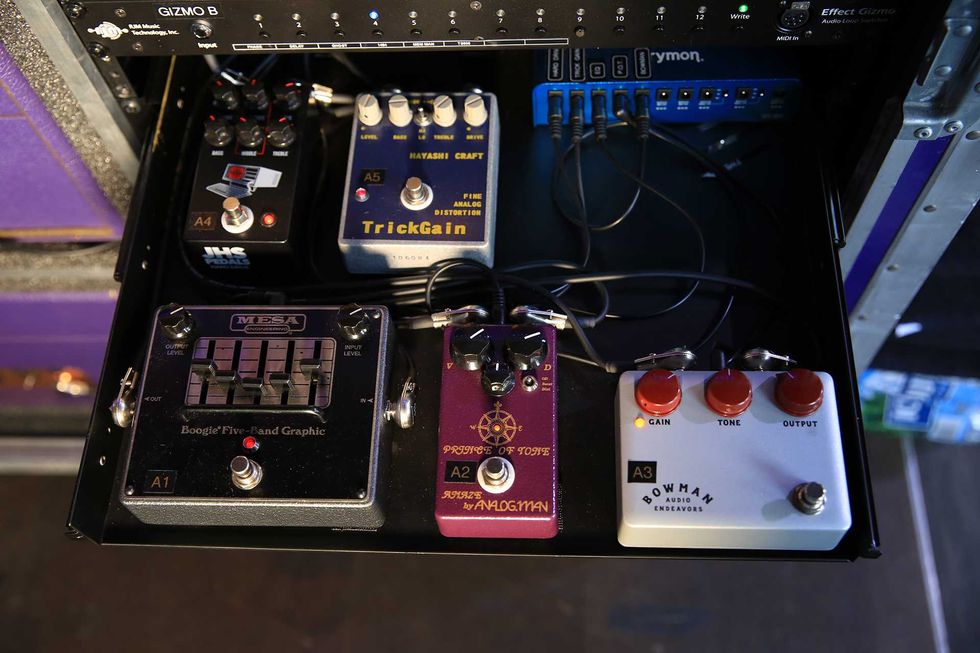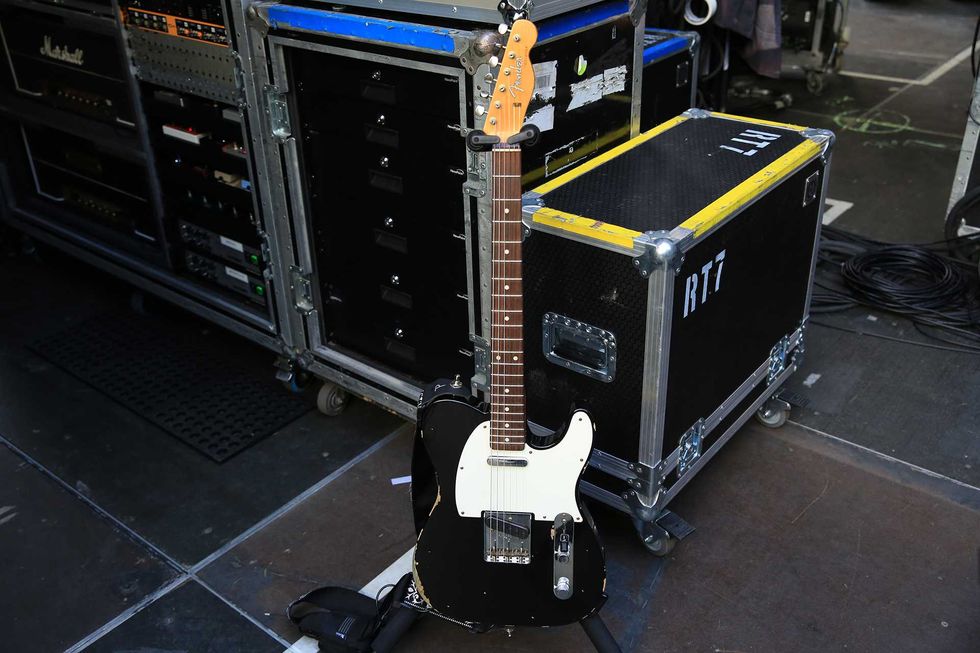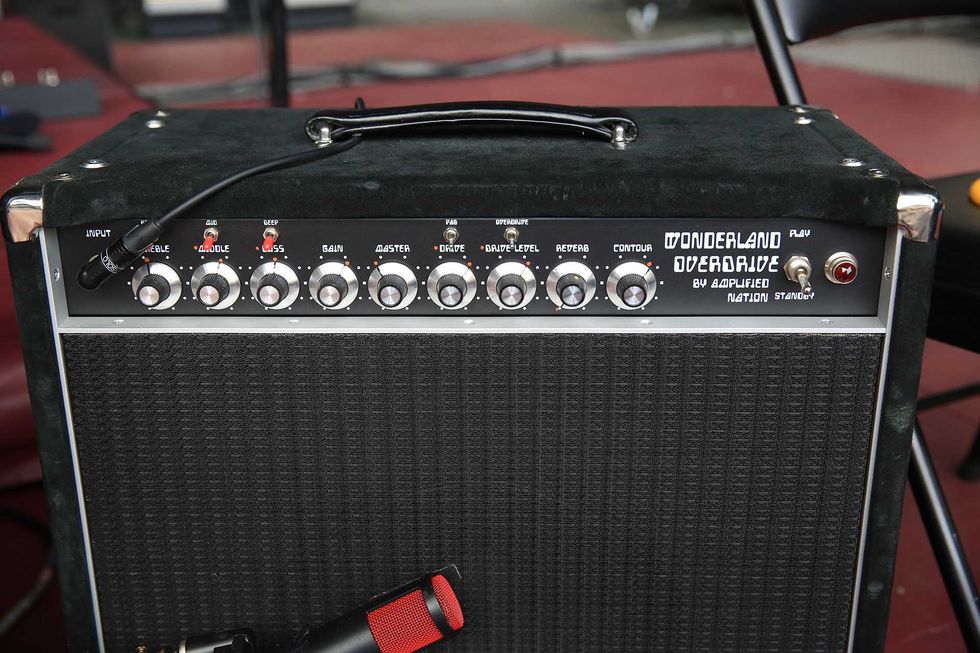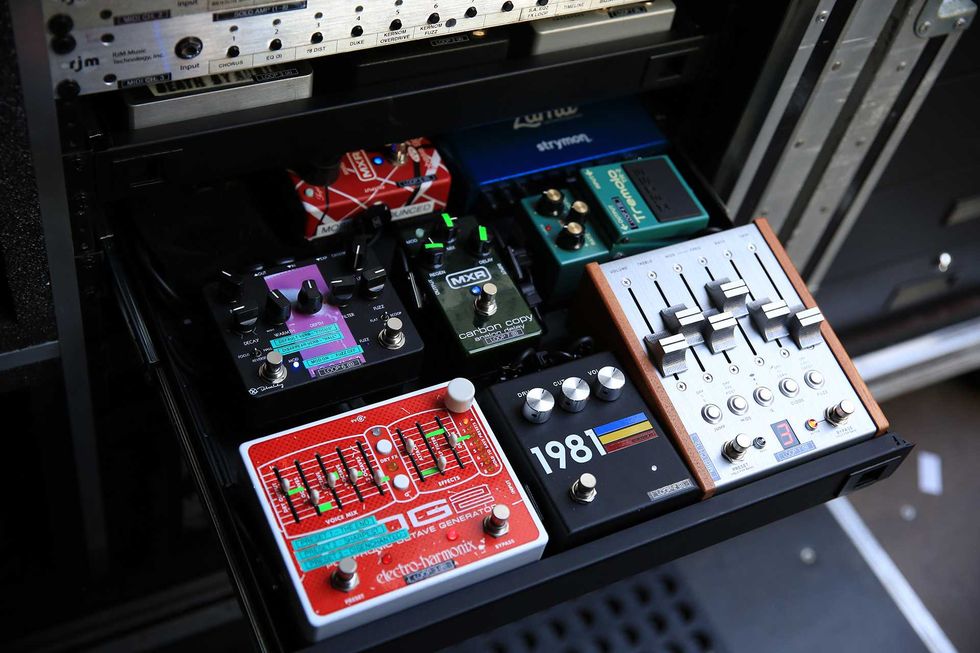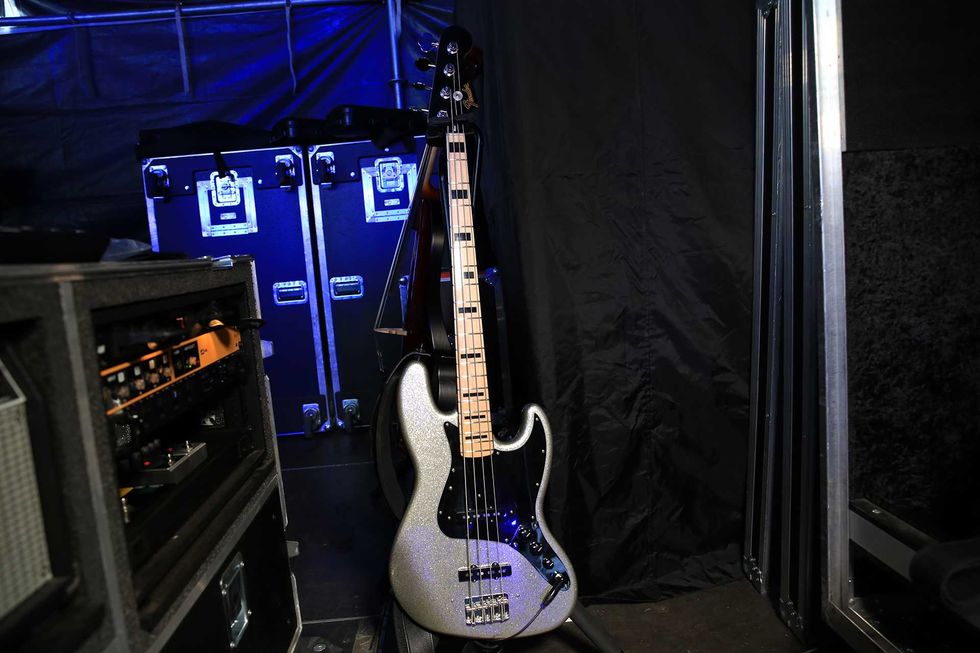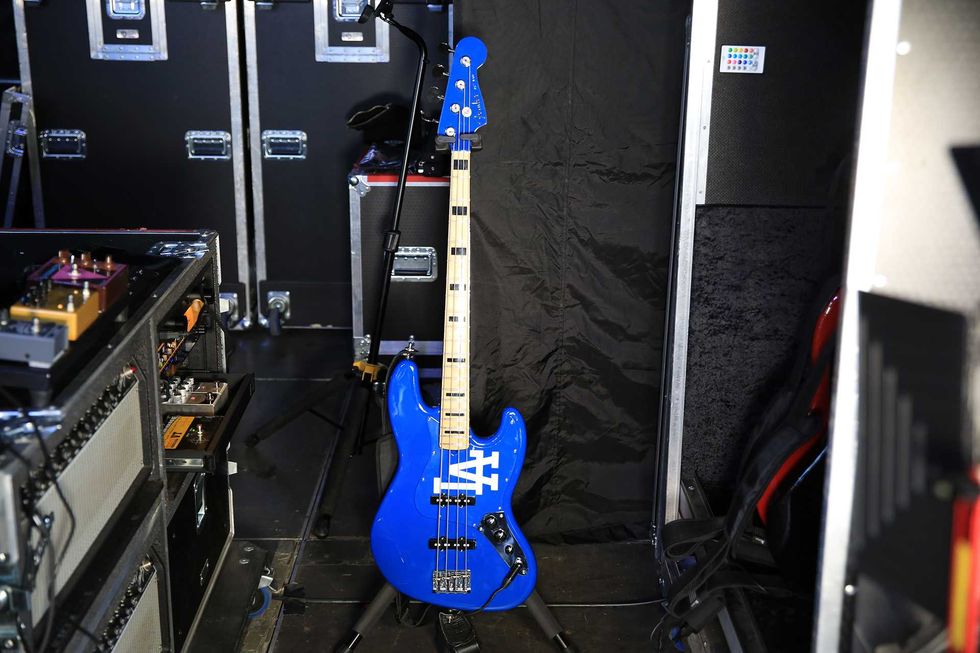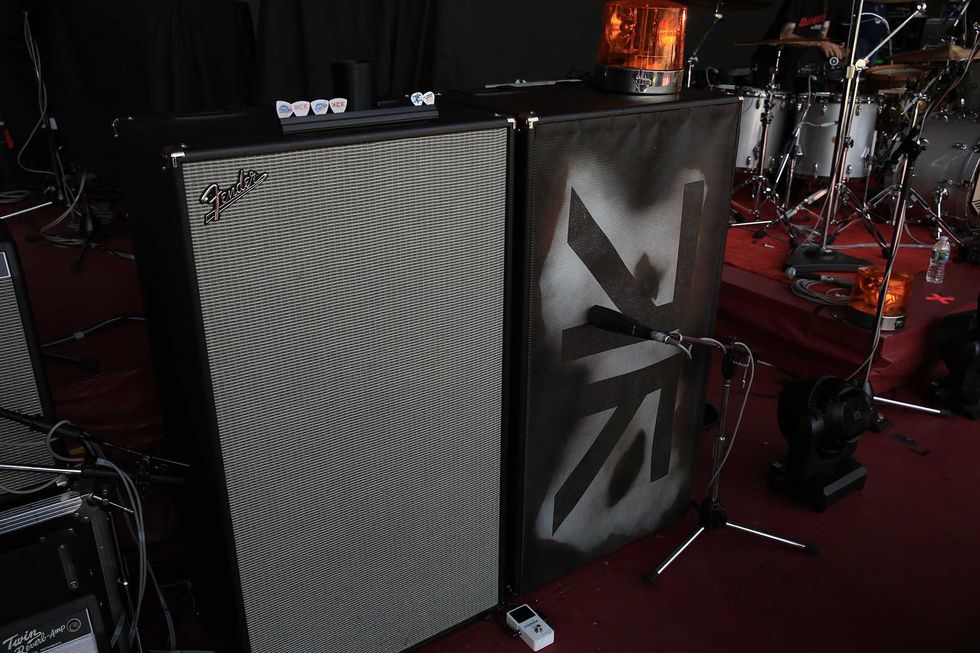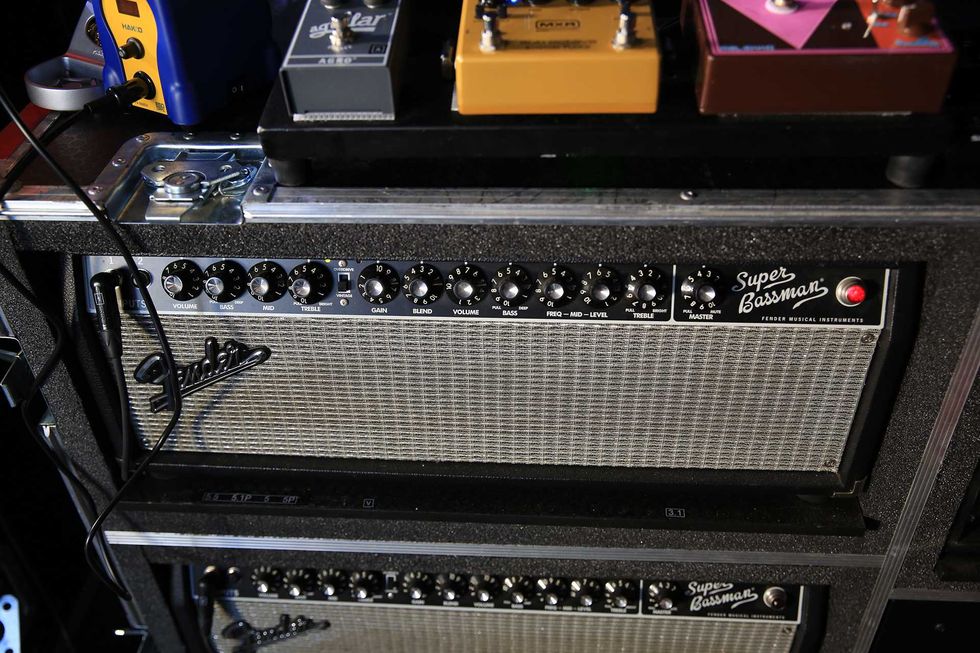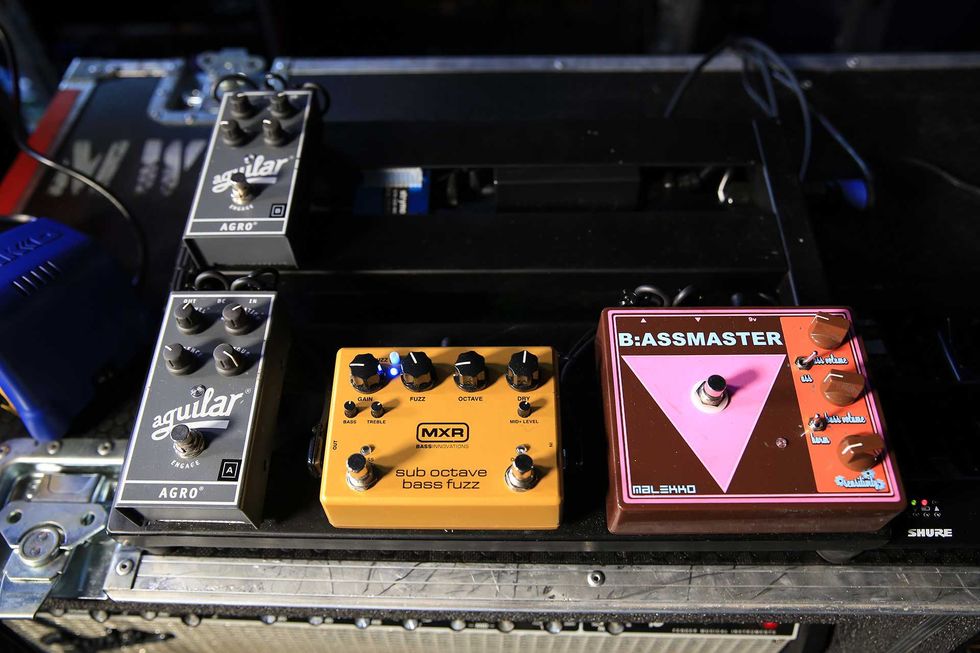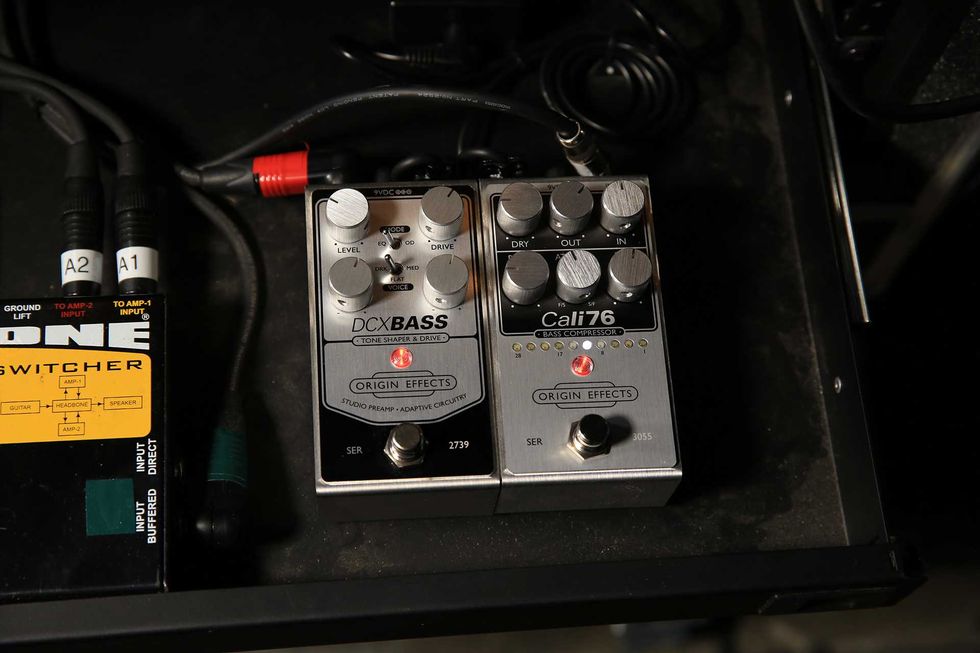Lemmy Kilmister sang with his head tilted straight back, like a wolf howling at the moon. His voice was charged with the same animal ferocity—a Jack Daniel's-cured growl that was a constant reminder of the danger within the bloodline of rock 'n' roll. And his bass playing with Motörhead was no less intense, drenched in distortion from a wall of overdriven Marshalls and punched out by a pick pummeling the strings of the three-humbucker signature model 4004 LK Rickenbackers he played for the last 20 years of his life.
All of that was silenced on Monday, December 28, 2015, when Lemmy died in his Los Angeles home at age 70 from an aggressive form of cancer that he'd been diagnosed with just a few days before. An early report stated that he died on his couch playing a video game, but given what we know of his proclivities Lemmy probably would've preferred to die with his hands wrapped around a slot-machine arm and a whiskey rather than a joystick. The legendary bassist had been stricken by heart issues and diabetes in recent years, and the health problems weren't just bad enough to cancel a European tour in 2013 and a handful of stops on a U.S. tour this fall—they actually induced Lemmy to quit smoking and reduce his drinking. He switched from his beloved Jack Daniel's—he reportedly consumed a bottle a day for more than 30 years—to vodka, which he considered a less potent beverage.
Rock 'n' roll was Lemmy's religion and he was one of its most colorful disciples, dressing in leather and denim biker regalia on and off the stage. The band he formed and fronted since 1975 took its name from the British slang term for a speed freak, and that perfectly matched the intensity of the music they played from day one. Although Motörhead is often cited for an obvious influence on thrash metal, they were also part of the nascent punk movement, with the sped-up, hardened pub-rock sound of their debut album, 1977's Motörhead, playing comfortably next to early efforts by the Ramones, the Sex Pistols, and the Dead Boys.
As Motörhead's sound crystallized, Lemmy's trio pushed tempos and the buzz-saw mesh of bass and guitar even harder and louder, paving the way for the New Wave of British Heavy Metal. In turn, that movement influenced bands like Metallica and Anthrax, who understood Motörhead's foundational role in the scene, revered them for it, and—along with Slayer and Megadeth—often covered Motörhead songs. And the respect was mutual. In 2005, Motörhead won a Grammy Award for its cover of Metallica's “Whiplash," which appeared on Metallic Attack: The Ultimate Tribute.
The legendary bassist's influence didn't stop there. Lemmy, whose given first name was Ian, was an erudite speaker and songwriter, and the blend of intelligence and brutality in Motörhead's music appealed to a generation of songwriters who emerged from the post-punk and burgeoning alt-rock scenes, including the Replacements' Paul Westerberg and Nirvana's Kurt Cobain and Dave Grohl. (The Replacements were among the many '80s and '90s bands known for covering Motörhead's 1980 breakthrough track, “Ace of Spades," in their live shows.) And both Duff McKagan and Slash have attested to Motörhead's influence on Guns N' Roses. But the strangest evidence of Motörhead's widespread cultural capital is the song “You Better Swim," Lemmy's rewrite of his 1992 tune “You Better Run," which he and the band recorded for the soundtrack of 2004's The SpongeBob SquarePants Movie. And they did it without compromising Motörhead's bloodletting sound.
Lemmy with his signature Rick bass and de rigueur Marshalls onstage in Camden, New Jersey, in 2008. “Lemmy was Motörhead," says the band's most recent drummer, Mikkey Dee. “But the band will live on in the memories of many." Photo by Frank White
Lemmy was born on Christmas Eve 1945 in Burslem, a farming hamlet that joined with five other small communities to form the town Stoke-on-Trent in central England. His parents split when he was 3 years old, and when Lemmy's mother remarried, he moved to Wales with his new family. There, while attending Sir Thomas Jones' School in Amlwch, he supposedly earned his nickname by constantly hitting up friends for money (as in, “lemme a fiver") to cater to his blooming lifelong passion for playing slot machines.
But for “Lemmy," the true die was cast when he saw the Beatles at Liverpool's Cavern Club at the age of 16. He got a 6-string and began learning licks from the Fab Four's 1963 album Please Please Me, also picking up a thing or two about sarcasm from John Lennon along the way. Before long he was playing in a series of bands in northern England, though none caught fire. He eventually moved to London and roomed with Noel Redding, which then led to a gig as a roadie for the Jimi Hendrix Experience. Things began to click when he became bassist and singer for psychedelic rock band Hawkwind—an amphetamine-fueled adventure during which he developed his distinctive approach to bass: applying the double stops, full chords, and other basic blocks he'd learned during his previous career as a rhythm guitarist to his new 4-string instrument. After a 1975 arrest for drug possession at the Canadian border, Lemmy was fired from Hawkwind despite providing the vocals for the band's highest-charting single, 1972's U.K. No. 3 space-rock hit “Silver Machine."
Lemmy immediately formed his own band, which—in keeping with his indomitable rock 'n' roll attitude—he named Bastard. When his manager told him a group named Bastard would never be allowed on TV's Top of the Pops, Lemmy renamed it after the last song he'd written for Hawkwind—only with umlauts tacked on top of the second “o."
Motörhead struggled in the clubs for two years, often sharing bills with emerging punk-rock outfits like the Damned (for whom Lemmy played bass on a 1979 single). The trio was about to disband when they were offered a recording opportunity that led to a record deal and the release of their eponymous debut album. When the follow-up, '79's Overkill, shot up the British album charts to number 24, the band's survival seemed assured. In the ensuing decades, Motörhead cut a total of 22 studio albums, and Lemmy juggled a number of side projects and collaborations—most notably the rockabilly group the Head Cat, which included Stay Cats drummer Slim Jim Phantom. He is also the subject of the 2010 documentary film Lemmy, a biography that includes many of his famous acolytes and contemporaries—Grohl, Ozzy Osbourne, Metallica, Joan Jett, and Anthrax's Scott Ian among them. Lemmy was also a gamer. “Ace of Spades" appears on three installments of the Guitar Hero series, and Lemmy himself is a character in Guitar Hero: Metallica.
After Lemmy's death, Motörhead's most recent drummer, Mikkey Dee, was quoted by the Swedish newspaper Expressen, saying, “Motörhead is over, of course. Lemmy was Motörhead, but the band will live on in the memories of many."
YouTube It
Lemmy Kilmister demonstrates his guitar-like approach to bass playing and the secret of his distorted tone—turn it up!—with his ornate, three-humbucker Rickenbacker signature bass.




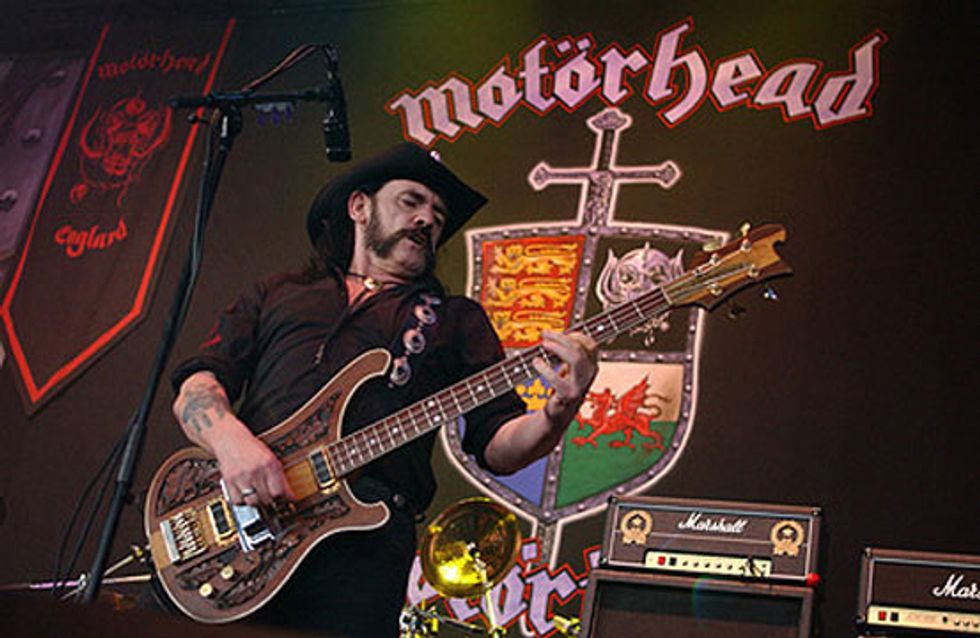


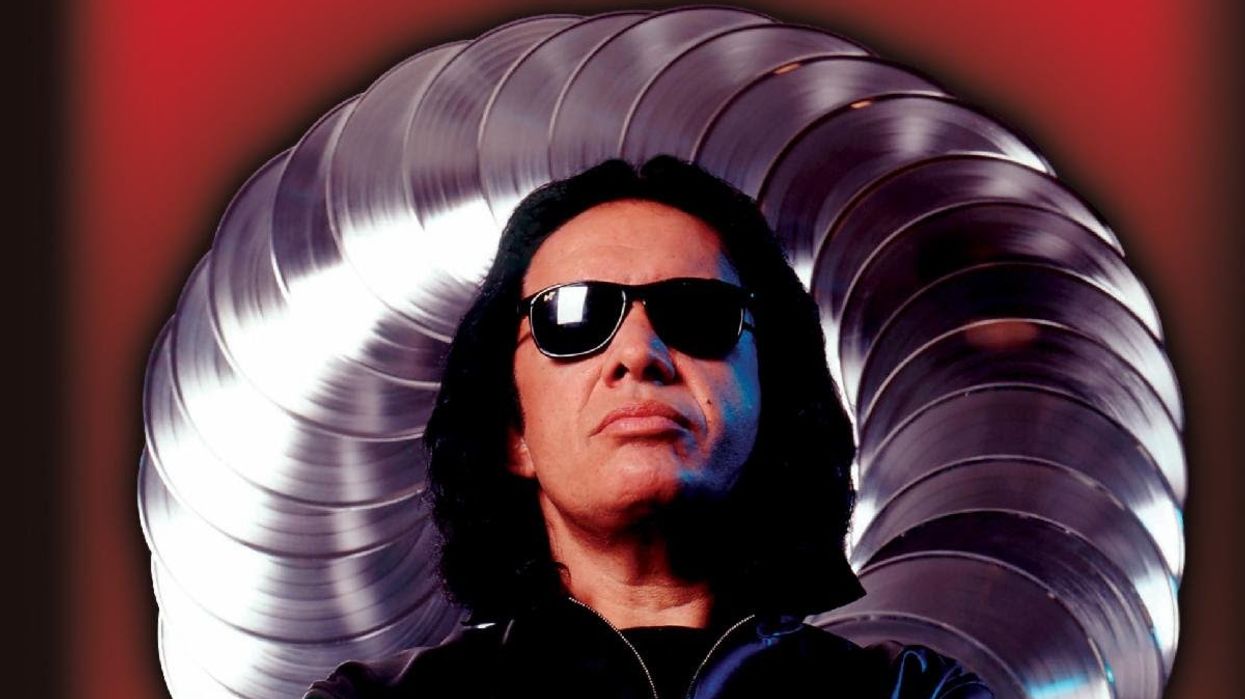
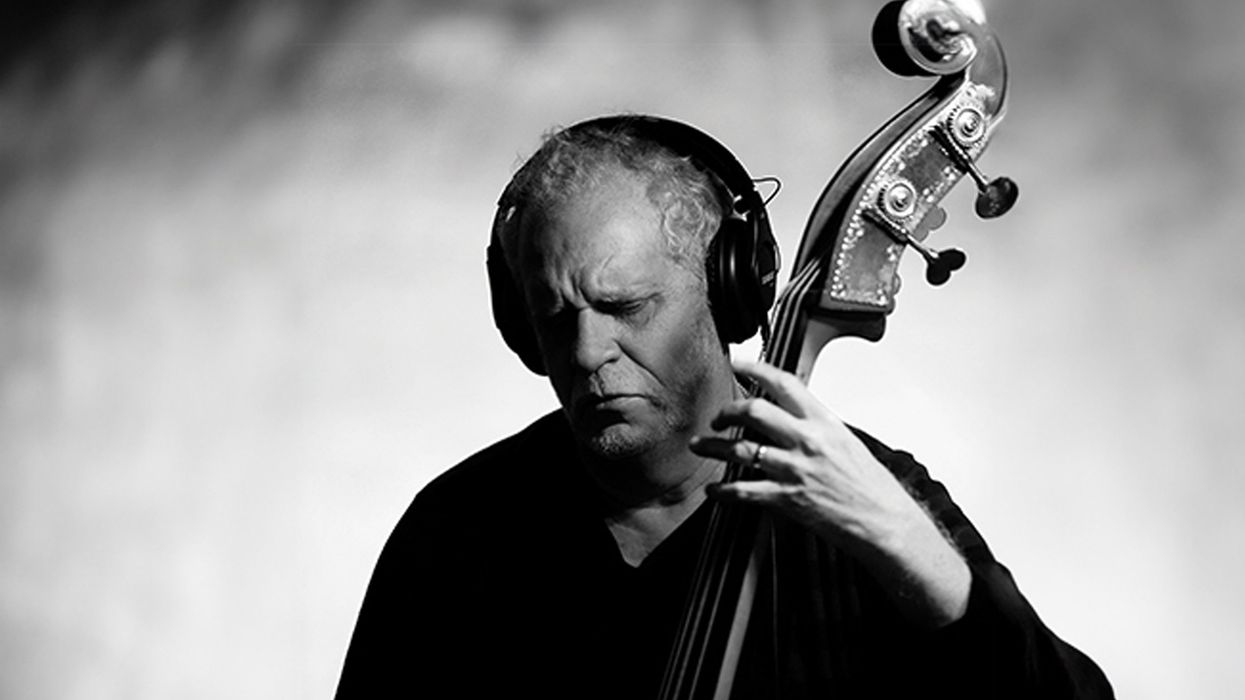








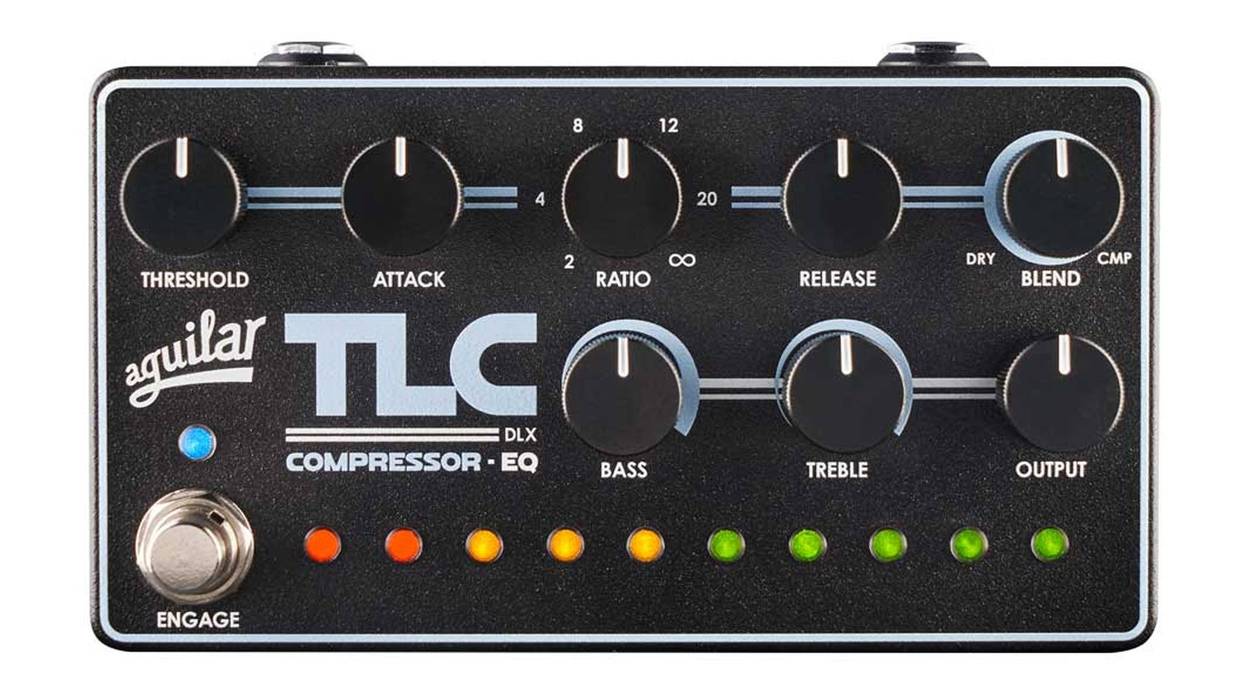
![Rig Rundown: AFI [2025]](https://www.premierguitar.com/media-library/youtube.jpg?id=62064741&width=1245&height=700&quality=70&coordinates=0%2C0%2C0%2C0)












 Shop Scott's Rig
Shop Scott's Rig







 Zach loves his Sovtek Mig 60 head, which he plays through a cab he built himself at a pipe-organ shop in Denver. Every glue joint is lined with thin leather for maximum air tightness, and it’s stocked with Celestion G12M Greenback speakers.
Zach loves his Sovtek Mig 60 head, which he plays through a cab he built himself at a pipe-organ shop in Denver. Every glue joint is lined with thin leather for maximum air tightness, and it’s stocked with Celestion G12M Greenback speakers.








 Luis Munoz makes the catch.
Luis Munoz makes the catch.

